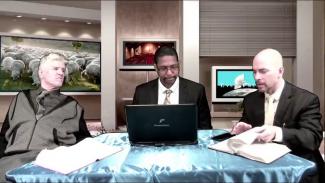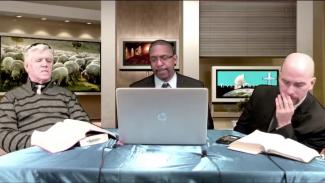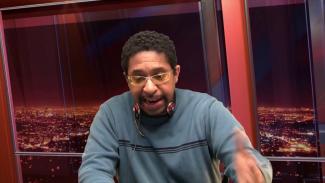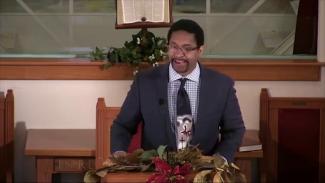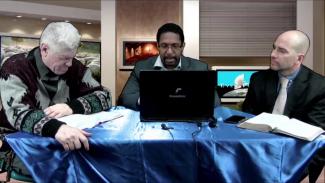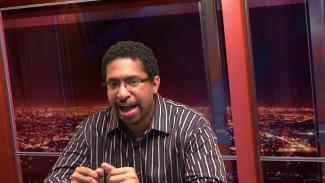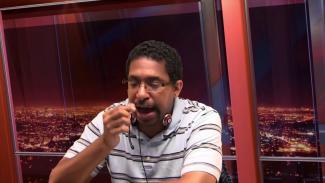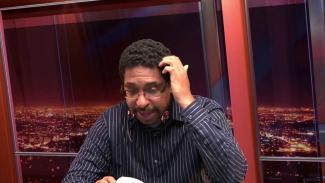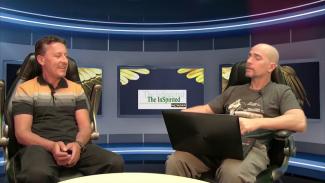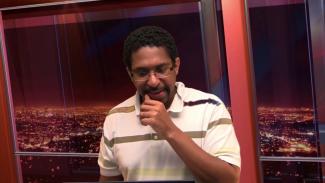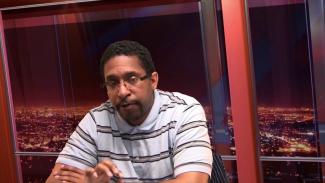The end of the story of Ruth and Boaz shows us how God often has a plan that we often can't see until we look back at how he has led us. Often God provides for us through the advice and wisdom of God fearing people He sends into our lives. Many feel alone because they don't have people close to them that can give them good counsel. What kind of people do you have in your life? Do you have friends that don't tell you what you want to hear? Can love look like correction?
Topic: Building Faith
To see more broadcasts select show names, a year, or all video media.How does God provide for us at times when we feel alone? Does God sometimes use people to bless us in times of need? Do we sometimes go through suffering without realizing and seeing how God is leaving us examples of His love to sustain us? How does the story of Ruth and Naomi help us to see how God is ever-present when we feel most alone?
How can the church be united in worship? What is worship? Why do we worship? How does worship form the basis for the end time conflict? In response to what God has done we worship Him as creator, redeemer, judge, and King of the Universe. Satan, through false systems of worship, often tries to steal the glory and honor due only to God. This great controversy has been shown throughout salvation history.
Elder John Spellman speaks on the subject of the story of Elisha and the widow's oil. As believers in Christ, we are God's vessels. Are we empty and ready to receive the oil of God's Spirit? Do we sometimes pray while filling our lives with things that prevent God's blessings? Are we empty and ready to be filled?
Has God ever led you to a place in your life where you felt alone? Are there times when you feel alone because you don't understand God's leading and direction? Sometimes we can be where God wants us to be--even in the church--and still feel alone because others don't recognize God's working in our lives. Ruth and Naomi were in Bethlehem Judah, the place where God wanted them to be, yet still felt alone because no one understood where God was leading them.
How did the Fall of humanity in the Garden of Eden lead to brokenness in our world? How did sin break apart the relationships established in Creation? What happen amid human families and how did things change after the Flood? Is unity always a good thing? How can we understand the Tower of Babel?
Why was Paul arrested during his trip to Jerusalem? Did Paul compromise in listening to the counsel of Jerusalem church elders? Why did the chief Commander protect Paul? What can we learn from these events about the hypocritical nature of persecution? How does Paul handle his arrest?
Where did Paul travel on his third missionary journey? What did God reveal as Paul moved toward Jerusalem and how did Paul respond to the revelation? How can we be better prepared for false prophets and false teachers? What kinds of believers did the apostles encounter in Ephesus? As Paul’s message spread what problems did this bring for the pagans?
Where did Paul travel on his second missionary journey? How did people among the Jews and Gentiles respond to the gospel message? How did God intervene at times when Paul wanted to give up or go in a different direction? Why was Timothy circumcised? How did the approach of the Bereans differ from that of those in Thessalonica?
Pastor Michael Mirra interviews Boro Bacev: an ex-homosexual sharing his testimony on surrendering to God and walking with Jesus as a member of the Seventh Day Adventist Church. After his conviction through a sermon by Doug Batchelor, Boro no longer identifies as a homosexual. Instead, he shares thoughts on his victory over sin, the modern day compromises in the church, and how to share faith with the LGBT community without compromising Bible principle.
What happened on Paul’s first missionary trip? How did he spread the gospel to different places and how was it received? What kinds of opposition did Paul and Barnabus face? What can we learn from these mission trips that may be applicable to our own mission as Christians today?
How did the early church begin to overcome its cultural biases against Gentiles? What does this say about the church overcoming ethnic biases today? What did Peter’s vision on Acts 10 really mean? Did it have anything to do with food? How did the church that was started in Antioch contribute to the breaking down of cultural barriers?

